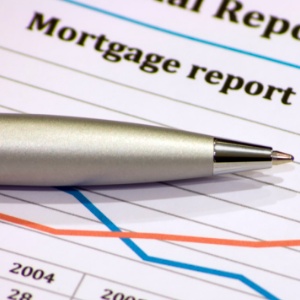 Banks and financial institutions filed a record number of foreclosures against homeowners last year. RealtyTrac, an online provider of foreclosure data, reported that U.S. properties received 2.8 million foreclosure filings in 2009, setting an all-time record. Unfortunately, these numbers haven't fallen much in 2010.
Banks and financial institutions filed a record number of foreclosures against homeowners last year. RealtyTrac, an online provider of foreclosure data, reported that U.S. properties received 2.8 million foreclosure filings in 2009, setting an all-time record. Unfortunately, these numbers haven't fallen much in 2010.
There are steps, though, that homeowners can take to prevent a bank foreclosure on their residence.
The first, and most important, is for homeowners to call their mortgage lenders as soon as they begin having trouble paying their monthly mortgage bills. It may be an uncomfortable call. But homeowners' mortgage lenders can often work out compromise solutions that keep owners from losing their homes to a bank foreclosure.
Mortgage lenders might be able to prevent a foreclosure by lowering the interest rate on homeowners' mortgage loans. This lowers the amount of money that homeowners must pay each month. It might even lower it by enough so that homeowners can now afford their monthly payments.
Lenders can also rework the terms of a mortgage loan. By converting a 15-year fixed-rate loan to a 30-year version, lenders will reduce the size of homeowners' monthly payments.
For homeowners facing more severe financial difficulties, mortgage banks and lenders can forgive a portion of a mortgage loan's principal balance. This, too, can cause a significant drop in the amount of money homeowners have to pay their lenders every month.
Some homeowners may only need a temporary break from making mortgage payments to get their finances back in order. In such cases, lenders might agree to grant homeowners a six-month to nine-month reprieve from making their loan payments.
It's important for homeowners to remember that mortgage lenders today are being encouraged to take these mortgage modification steps by none other than the federal government. In 2009, the government launched its Home Affordable Modification Program, which provides financial incentives to lenders who modify the mortgage loans of struggling homeowners. The goal of this program is to encourage lenders to reduce the monthly mortgage payments of homeowners who are facing financial setbacks. The government started the program as a way to cut down on the rising number of bank foreclosures sweeping the country.
Today, most mortgage lenders are participating in the Home Affordable Modification Program, something that might make it easier for homeowners to negotiate a lower mortgage payment.
What else can I help you with?
Where can I find an online site to help me prevent a bank foreclosure on my home?
The best place to go for advice on this issue is the official government website www.hud.gov/foreclosure/. Here you can find all the information you need to avoid this.
Will the bank sue you if you foreclose on your home loan?
Yes, the bank will sue you if you default on your home loan and place your house in foreclosure.
How do you prevent your home from going in to foreclosure?
By paying your mortgage payments on time.
Where can one find listings of homes in foreclosure?
Listings of homes in foreclosure can be found on Realty Track, Bank of America, Home Finder, Zillow, Orlando Sentinel, Home Path, Real LePage and Alabama Foreclosure.
How can I purchase a home that is in foreclosure?
Purchasing a home in foreclosure is easy. Contact the agent that has the property listed for the bank, submit and offer, have an inspection and close on the house if your offer is approved.
What is a bank foreclosure?
It when your mortgage to the bank has been defaulted on and they decide to take back your home to compensate for their lost money.
How long will bankruptcy prevent a foreclosure?
Bankruptcy will prevent a foreclosure but you still have to reaffirm the loan and begin paying or the bank will repossess your house regardless of bankruptcy. Bankruptcy temporarily halts the process for up to a couple months.
Why would a homeowner need to hire a foreclosure attorney?
A homeowner may need to hire a foreclosure attorney if they are being foreclosed upon by the bank or lender, or person who provided the mortgage. If a person owes more on his home than the home is worth, the bank may try to foreclose on the home, in which case, one would need a foreclosure attorney.
If make partial payment on home in foreclosure after 6 months will this delay foreclosure?
You should contact a Realtor who specializes in Short Sales so they can negotiate your situation with your bank to stop the foreclosure.
When a bank seizes and sells a home to get as much of its loan back as possible?
That is known as foreclosure.
Can home be refinanced after foreclosure with new bank?
Yes, although technically it would not be "refinanced" but rather "financed" because the foreclosure ended the earlier financing.
Can a mortgage borrower apply for court foreclosure?
No. A borrower cannot "apply" for foreclosure. A bank commences a foreclosure when the borrower defaults on their mortgage payments.No. A borrower cannot "apply" for foreclosure. A bank commences a foreclosure when the borrower defaults on their mortgage payments.No. A borrower cannot "apply" for foreclosure. A bank commences a foreclosure when the borrower defaults on their mortgage payments.No. A borrower cannot "apply" for foreclosure. A bank commences a foreclosure when the borrower defaults on their mortgage payments.
